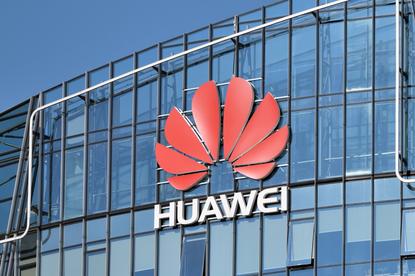Huawei exec attacks NBN, Ericsson
- 25 June, 2019 18:14

Huawei Australia’s chief technology officer has claimed the National Broadband Network project has “failed” and that “Australians needs to stop expecting NBN Co to deliver high-speed broadband to all Australians – it is just not going to happen”.
David Soldani made the claim in remarks prepared for the 5G Business Summit in Sydney and circulated by Huawei.
“Australia has somehow managed to invest $51 billion on a network that can’t even deliver 50Mbps to around one million of its fixed-broadband end-user premises,” Soldani said.
“In fact, the actual cost of the NBN is much than that given that reports suggest that NBN Co is paying Telstra around $100 billion in subscriber migration and lease payments over the coming years.
Soldani said that Australia had spent around $10,000 for every activated premises on NBN Co’s fixed wireless network. “Hundreds” of NBN fixed wireless sites are only delivering 6 megabits per second (Mbps) or less during peak periods, the CTO said.
6Mbps during the evening busy period is the threshold NBN Co uses for determining whether a wireless cell should be considered congested. Addressing wireless congestion is one of the factors that led the NBN rollout costing more than the government and NBN Co management had expected, with the company putting $800 million towards tackling the issue.
Without naming the company, the statement circulated by Huawei said Soldani argued in his speech that NBN Co’s fixed wireless partner – Ericsson – had “been able to escape scrutiny for its role in mishandling the deployment.”
“Indeed, rather than the federal government ask serious questions about how they may be culpable for what has gone wrong with NBN fixed wireless they have actually delivered them an even bigger role in delivering our crucial 5G infrastructure by excluding Huawei from the 5G market.”
In August 2018, Huawei revealed the Australian government had informed it that it would not be permitted to supply 5G equipment to telcos.
The government has cited national security as the reason for the ban, which uses powers granted by the Telecommunications Sector Security Reforms (TSSR) regime. The TSSR empowers the government to direct Australian network operators to take steps Canberra believes are necessary to protect national security.
Huawei in 2012 was also banned from participating in the NBN rollout.
“Ericsson does not comment on unsubstantiated claims by competitors, who are currently facing business challenges in the Australian market,” an Ericsson spokesperson told Computerworld.
“Ericsson has operated in Australia for 129 years and has always been and continues to be a trusted and ethical partner of our customers – which include leading telecommunications operators in Australia – and all our stakeholders, including government, enterprises and consumers.”
“We have delivered over 40 world and Australian firsts in partnership with Australian customers over the past 10 years, including several major 5G firsts, to drive innovation and ensure Australia’s telecommunication networks remain at the forefront of technology,” the spokesperson said.
An NBN Co spokesperson said that 62 per cent of the 9.6 million premises connected to its network were on plans with wholesale speeds of 50Mbps or faster.
“NBN Co is committed to continuously improving the service provided as internet demand and data needs evolve,” the spokesperson said.
“One example of this is an additional $800 million investment to improve the customer experience on the fixed wireless network.”
“Our upgrades have already begun to show signs of this improvement and while around three quarters of regional Australia is serviced by fixed line broadband technologies, we will keep working to further improve the fixed wireless network in the coming months and in to the future, as we continue with our planned upgrade activity,” the spokesperson said.
Ericsson is the key vendor for Telstra’s roll out of 5G. Optus, which has used Huawei equipment for 4G, is pursuing a multi-vendor approach with Ericsson and Nokia.
Vodafone, which has also in the past employed Huawei equipment, has yet to announce a decision on its 5G vendor, though has criticised the government for the ban on the Chinese vendor.
TPG, which is seeking to merge with Vodafone, cited the ban as its reason for dumping the deployment of its own mobile network (TPG’s mobile ambitions are at the centre of a court case challenging the Australian Competition and Consumer Commission’s opposition to the TPG-Vodafone merger).
In his remarks, Soldani said that 5G fixed wireless could help deliver fast broadband in regional areas.
“So, using the hugely successful Mobile Blackspot program as a template why not encourage the mobile network operators to extend their regional networks and use that available spectrum to deliver 5G fixed wireless services to consumers?” the CTO said.
“Alternatively, we could look to take a leaf out of what has been happening in Victoria where the state government and local council have collaborated to deliver a contract to private operators to deliver high-speed Fixed Wireless services of up to 1Gbps to regional end-users.”
The CTO said that NBN Co’s wholesale pricing meant that the company could not deliver gigabit speeds at a reasonable cost to households, which meant there is “little point” having the network operator deploy 5G. NBN Co has indicated that 5G could potentially offer an upgrade path to its fixed wireless service.
Optus chief executive Allen Lew in April argued that the government should consider a scheme whereby network operators give NBN Co access to 5G infrastructure to provide the ‘last mile’ connection to premises in areas where NBN Co’s spectrum is constrained or achievable speeds are limited by the use of copper wiring.
Soldani said that if 5G plays a key role in delivering broadband to Australia, “It makes no sense for Australia to continue to exclude the world’s leading 5G technology provider from the marketplace.”
